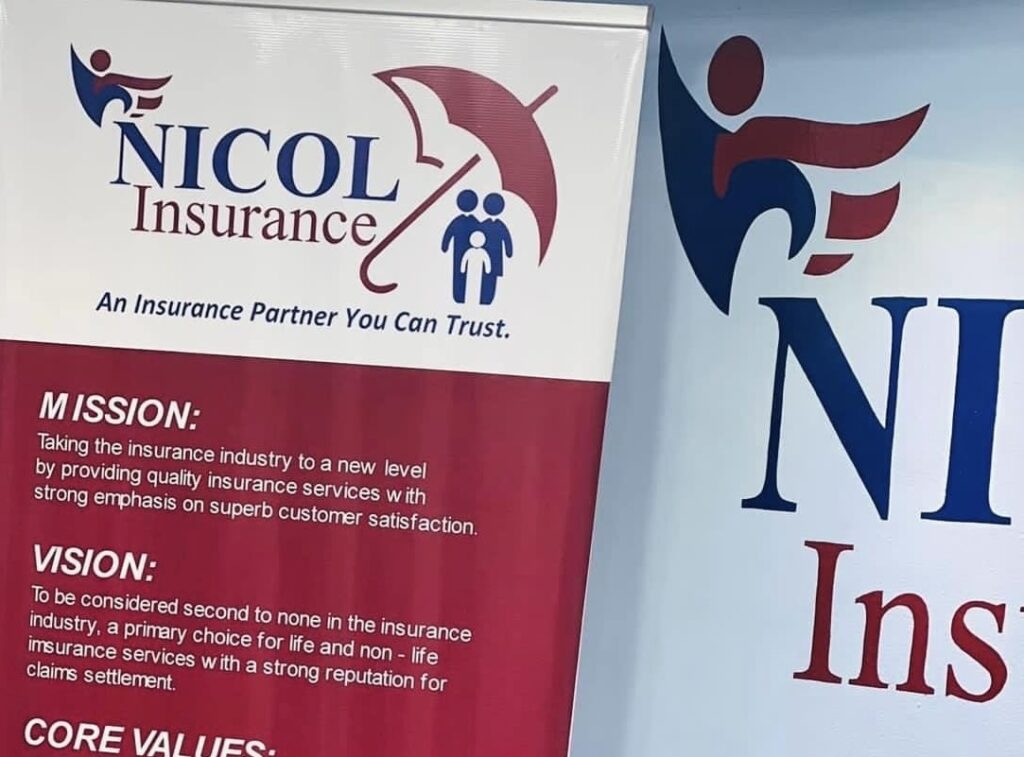The Government of Liberia’s established Insurance Company, National Insurance Company of Liberia (NICOL) is actively pursuing insurance clients and businesses at the detriment of Liberian owned companies.
NICOL is providing vehicle and other insurance services in direct competition with Liberian owned companies. This is not good for the Liberian business environment.
Sources say the initial intent of the government when NICOL was established in the 1980s was to help support an industry that was quite small and needed reinsurance support services. Liberia at the time had only about five or six insurance companies, most of which were foreign owned, and international partners encouraged the strengthening of the industry.
Since then, several Liberians have invested and opened several insurance companies in Liberia. Currently 10 of the 15 companies licensed to operate insurance businesses in Liberia are Liberian owned and staffed. Insurance remains one of the only sectors where Liberians own a majority of the companies, unlike many of the other major ones – foreign entities or individuals are the majority in terms of service providers in banking, mining, extractive industries (gold, iron ore), supermarkets, building materials and many more.
It is therefore very concerning that government would actively move into this sector to compete against Liberian owned businesses. Insurance is a very careful business with many risks. How can government provide insurance to itself, as it seems to be doing with NICOL? That means the risk, which is the purpose of getting insurance, is still maintained by government. No real protection is in place, if there is a vehicle insurance accident claim from one government office, another office (NICOL) will pay? This does not make sense for a government where many sectors are underfunded.
NICOL was established in a very different economic environment, when government support to the industry was needed. After the civil crisis began in 1990, NICOL went dormant for over 15 years. The first post civil crisis administration of UP/President Sirleaf decided to not reactivate NICOL, the assumption is – it was not seen as in the best interest of the Liberian people or Liberia, the private sector was already beginning to actively build the insurance sector and government had many other priorities than entering a competitive market.
The Weah administration chose to reactivate NICOL in 2018, though it is questionable whether that was to the help or detriment of the Liberian people. Since 2018, NICOL has not met any of the requirements under law to operate as an insurance company, making government both referee and player. Referee, because Central Bank regulates insurance, and a player through NICOL, a player that is not following the rules, having not met all of the CBL requirements to be an insurance company. Other Liberian companies have been shut down for not meeting CBL standards, however NICOL continues to do business and sources indicate NICOL has not met the requirements to even get a CBL license to operate.
With the current Administration’s decision to continue with NICOL, many are concerned as to what benefit NICOL will bring to the Liberian people. Currently there seem to be only two effects of continuing with NICOL are so far.
The first is taking business away from Liberian companies and their employees and families.
The second is – NICOL now has a 2024 budgetary allotment of estimated 250,000 USD that brings no benefit to Liberia. There are so many other areas these funds would be of better service to the Liberian people – including health, education, road maintenance, the needs are many.
It is important that government stays out of competitive businesses such as insurance. Rather encourage Liberian business to grow and pay their taxes. Should government even be in competition with the private sector? Our Leaders need to make sure whether NICOL is in the best interest of improving Liberia and the lives of the Liberia people and make decisions that help Liberian businesses not hurt them.

